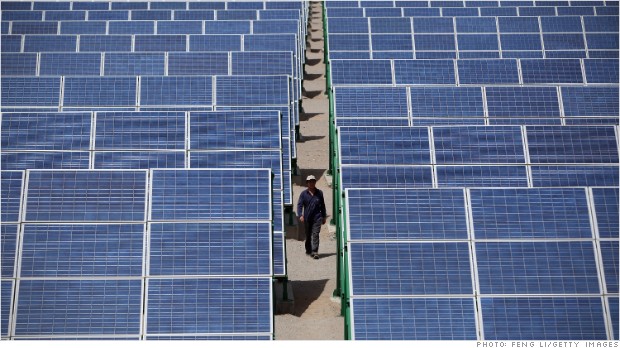
Earlier last week, Shanghai Chaori Solar Energy, a small Chinese solar firm, defaulted on its debt. The firm could not make a payment to investors on a $ 164 million bond. It was supposed to make $15 million interest payout buy had only managed to raise $650,000. Although the company had not issued a formal statement yet, analysts confirmed the default. This was China’s first corporate default in onshore bond market.
However, Chaori Solar’s woes were not actually a total surprise. In fact, the company suffered from the losses for two consecutive years that trading in the bond was suspended in 2013. What is more important is that we can observe the lack of a last-minute government rescue. As CNN describes, “Local Chinese governments are known for delivering bailouts or extended debt deadlines.” But there was no talk of saving Chaori on the deadline day.
Fitch analysts Ying Wang and Kalai Pillay argue that the failure to save Chaori (or allowing the Chaori default) shows the shift in the “government’s stance towards a greater tolerance of outright corporate defaults.” Barclay’s economist Jian Chang also agrees with them that the government did not take any actions because there was not a big change that the default would lead to a major credit or financial crisis.
Experts expect that there will be more defaults (but selective) particularly in energy and resources. This will happen when Beijing says “it plans to work toward building a market-driven economy.” No one is certain what will happen with China’s efforts for financial reform, but this default can be a step in the right direction to reduce wasteful investment and a potential bad debt buildup.
This seems to be a question of whether China chose to let Chaori default or whether the government realized that it is no longer in a position to be supporting risky ventures in over saturated markets. While I agree with you that the decision is a strategic choice by China to begin moving towards a market driven economy I’m not convinced that China really had any other options. This was a small default in a market that has been invested in on the supply side. I would argue, interestingly, Chaori was too good of a default for the government to pass up.
I agree with both of you that China made a conscious decision to allow Chaori to default in order to move towards a market-driven economy. What is intriguing, however, is how China strategically picks and chooses which companies/banks it bails out. For example, I remember a post a couple of months ago about a couple of banks who were bailed out by “unnamed sources.” As Kuveke points out, Chaori’s default does not affect the Chinese economy or ego as much as a major bank defaulting would have.
China’s (and the then-world’s) largest solar cell company went bust; years back a regional development trust also went bust. So I’m not sure it’s accurate to call it “first” (except with the carefully phrased proviso) and it’s certainly not the largest. But many, many large Chinese companies have closed their doors. Whether the route was “bankruptcy” (a specific legal procedure) is perhaps not so important. If there are only a few creditors, then a private workout is normal. If there are no assets, then just leave … preferably quickly, at night.
I think this case was interesting because the government had a chance to save the company. However, it purposely did not for the “financial reforms,” signaling that more and more companies will close their doors.